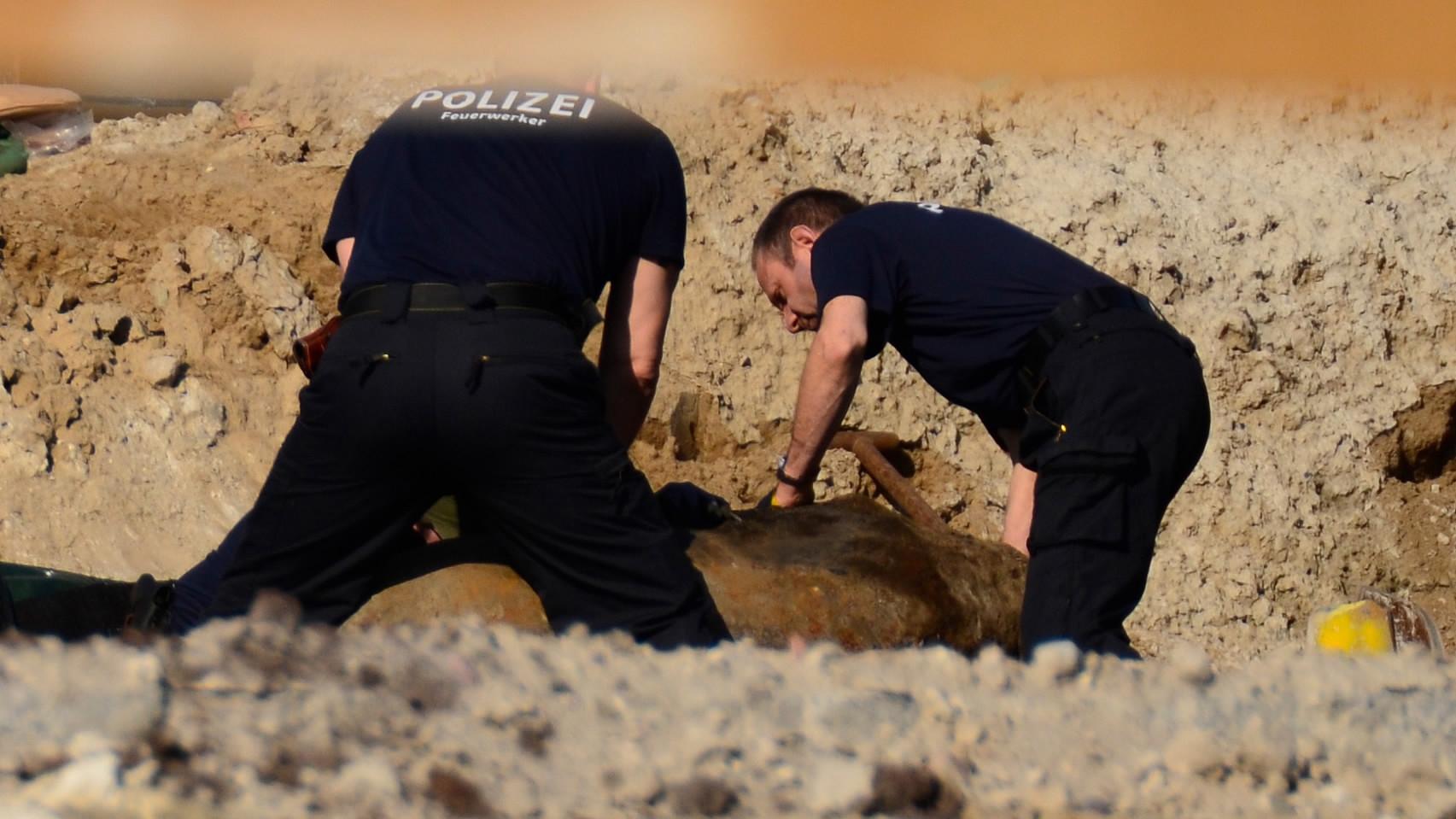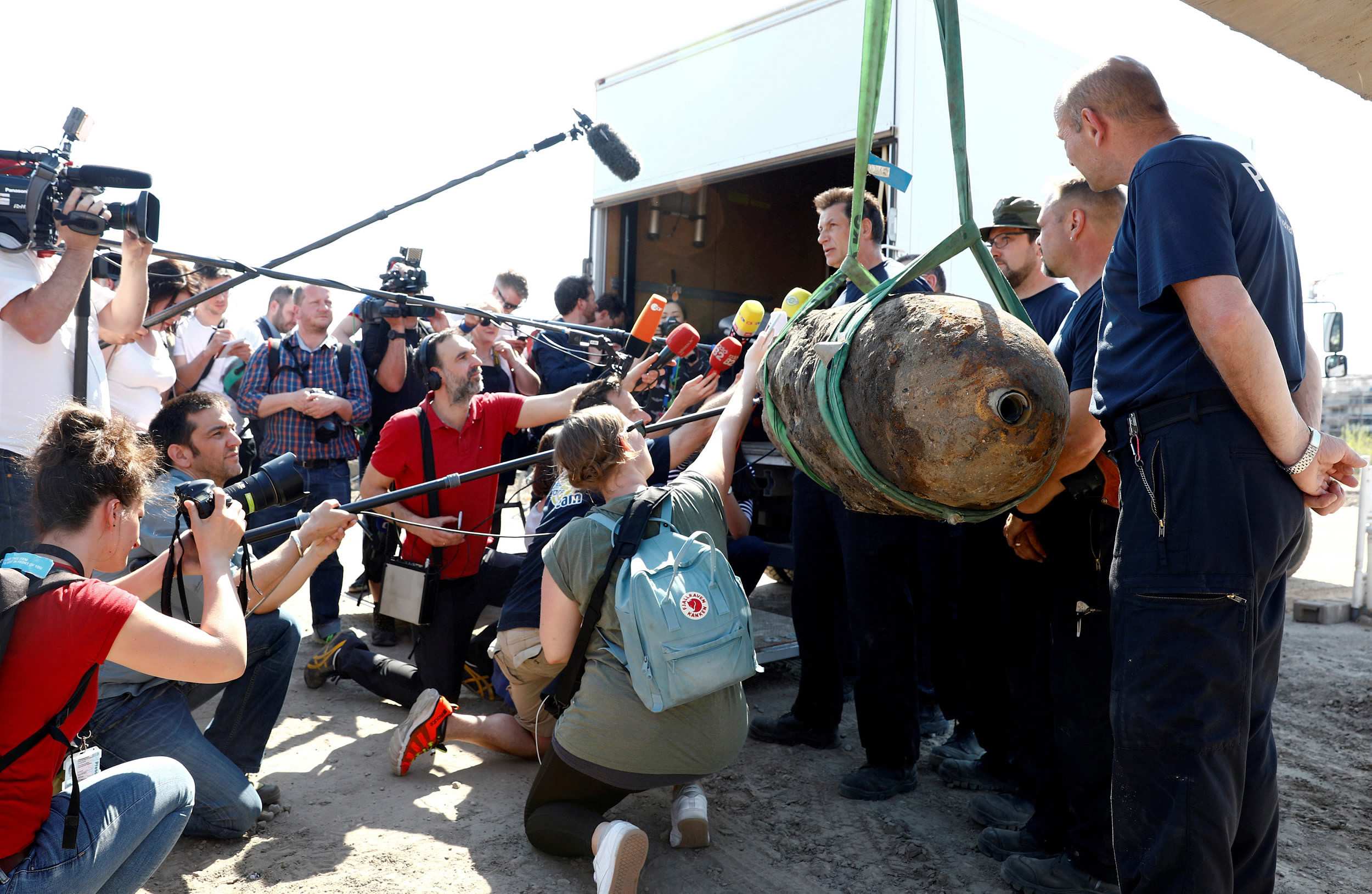
World
13:25, 21-Apr-2018
Thousands of tons of unexploded bombs may still be in Germany
CGTN

An unexploded 500-kilogram bomb from World War II was discovered during construction work near the city's central train station in Berlin, Germany, on Tuesday.
On Friday, a bomb disposal unit from the German police defused the explosive, blocking off an 800-meter radius around the site as a precaution to local businesses and residents in the process. Even some flights and public transport were disrupted, and restrictions were imposed until the bomb detonated.

The bomb defusing team talks with media next to dismantled World War II bomb at a construction site near the central train station in Berlin. /VCG Photo
The bomb defusing team talks with media next to dismantled World War II bomb at a construction site near the central train station in Berlin. /VCG Photo
Just a week ago, a family in Paderborn, Germany, found a 1.6-ton bomb in their garden, and more than 26,000 people had to be evacuated.
How many bombs have not been discovered?
Hundreds of World War II bombs which failed to detonate due to technical issues are found every year in the country. Between 1940 and 1945, American and British air forces dropped nearly 70,000 metric tons of explosives on Europe, half of which targeted Germany. A quarter of a million of these did not explode.
More than 2,000 tons of live bombs and ammunition were found each year in Germany for more than 70 years after the end of World War II.
Some have been caught by fishermen, some dug out by excavators during road construction, and some are simply discovered by farmers accidentally on farmland.
"It's impossible to know, many of them buried dozens of feet below the surface," according to Matt Brosnan, the historian of Imperial War Museum in the UK.
This is true especially in areas that were heavily bombed during the war, such as in Ruhr area, Cologne, Hamburg and Berlin.
More frightening is that the bombs will become more sensitive as time passes. External influences such as vibrations or even temperature changes could cause them to explode.
These dangerous remnants of war can also be found in Britain, where the German air force carried out 85 major raids and dropped 24,000 metric tons of explosives on London during World War II.
7368km

SITEMAP
Copyright © 2018 CGTN. Beijing ICP prepared NO.16065310-3
Copyright © 2018 CGTN. Beijing ICP prepared NO.16065310-3